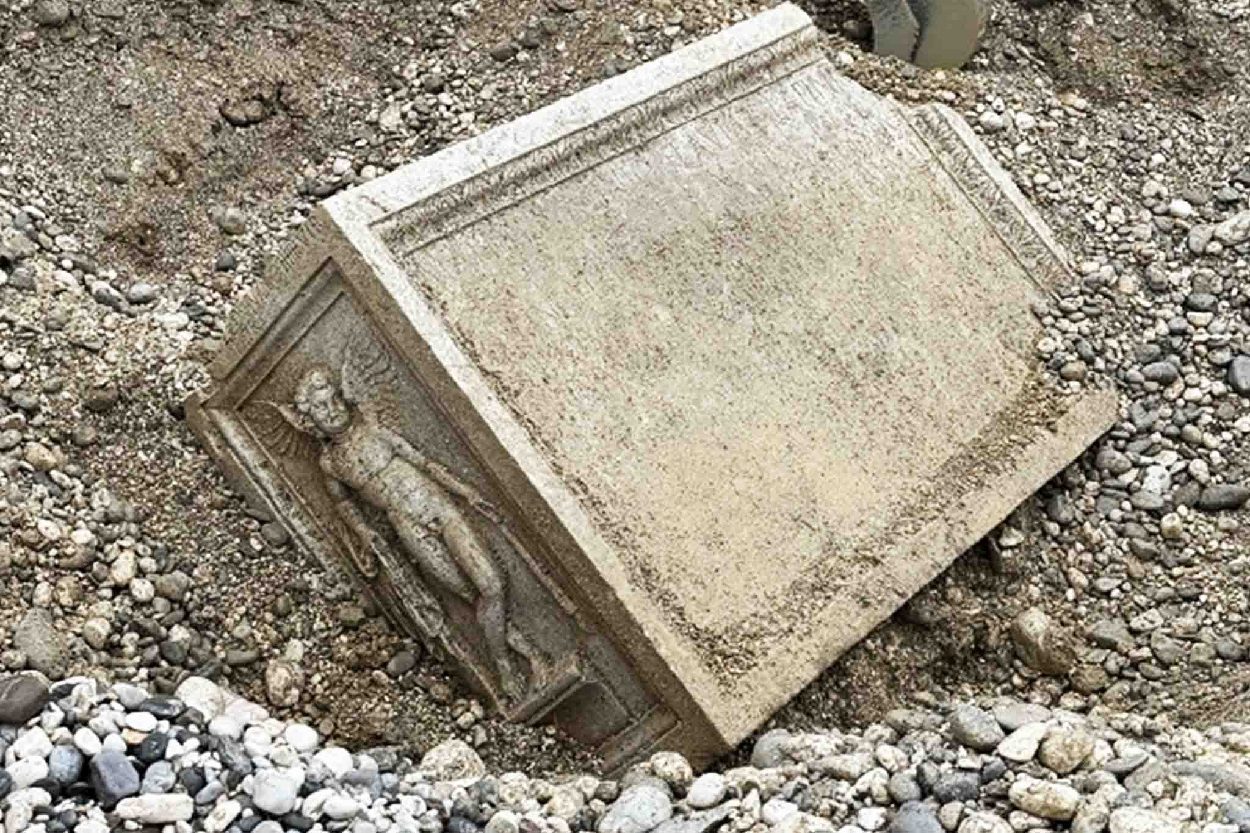Archaeologists have recovered a Roman funerary altar which was found partially buried in the Torree river in the municipality of San Vito al Torre, Italy.
The discovery was made by Ervino Silvestri after he noticed a block of partially exposed limestone and contacted the local authorities.
Archaeologists from the ABAP FVG Superintendency conducted a series of excavations to not only free the monument, but gain further information about the surrounding archaeological stratigraphy.
A preliminary examination dates the altar to the Imperial Era (31 BC – AD 476), which has been found almost completely intact except for the upper right corner.
On the front is an inscription placed inside a molded frame that refers to “gen Apinia”, likely denoting the family gens who share the same nomen gentilicium and claim descent from a common ancestor.
On one of the sides is an image of a winged Erotes, a winged god typically associated with love and sexual intercourse from Ancient Greek mythology. During the Roman period, Erotes are sometimes assigned with particular associations with aspects of love.
The Erotes image is shown standing on a pedestal and holding an overturned torch and poppy flower, both recognised as symbols representing eternal sleep.
The rear side of the altar appears rough-hewn and somewhat damaged, with sections flaking off, likely as a result of prolonged exposure to the flowing water of the river.
According to the ABAP FVG Superintendency, a study of the vicinity also led to the discovery of a stone funerary urn, two limestone bases, several pieces of tiles and bricks, and a limestone face.
Header Image Credit : ABAP FVG Superintendency
Sources : ABAP FVG Superintendency





